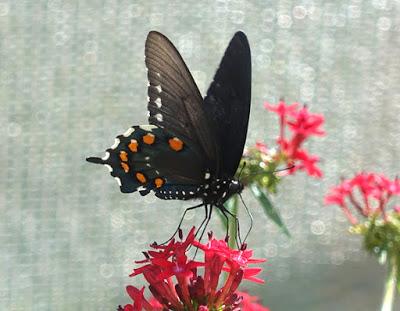
A Pipevine Swallowtail butterfly, a California native species
Butterflies are nature’s jewels of the air. When I was a child, one of our many family hobbies was collecting butterflies–searching the meadows and fields of Minnesota and Wisconsin in summertime for monarchs, fritillaries, white and yellow sulphers, mourning cloaks, and more, catching them in our butterfly net so we could see them up close. It was always a special thrill to find a swallowtail with its elegant wings.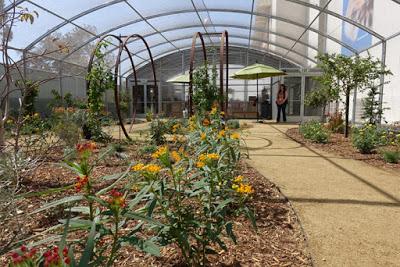
Inside the Butterfly Pavilion at the Natural History Museum of LA County
Last week, I made a special trip to the new Butterfly Pavilion at the Natural History Museum of Los Angeles County, to see some of the same species of butterflies again, as they flitted from flower to flower inside a large enclosed outdoor exhibit. Butterflies were everywhere--on the flowers, clinging to the netting, resting on the ground and flapping through the air. All of the more than 30 species of butterflies in the exhibit are native to North America and many live in California. Large illustrated cards are available to carry around and identify the species.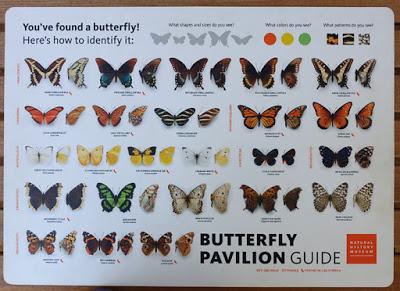
- For some butterflies, bright colors and patterns help males and females find one another.
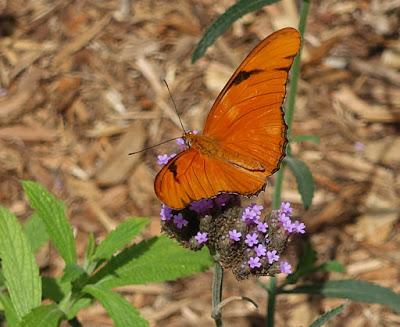
A Julia Longwing butterfly, male
- Colors can sometimes help butterflies blend into their surroundings and hide from predators.
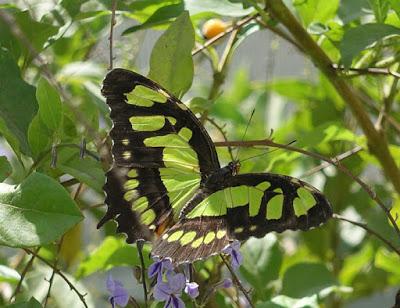
The Malachite butterfly's wings blend into the sunlit leaves
- A few butterflies taste really bad. Predators remember bold colors and avoid them.
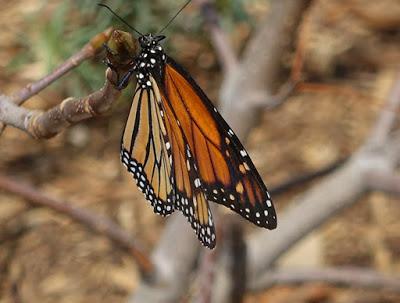
The Monarch, a native in California, depends on milkweed plants for breeding
- Some wing patterns look like large eyes of other larger animals and “fool” potential predators.
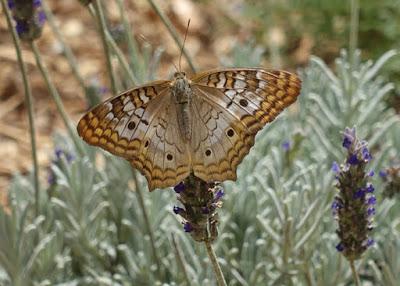
the White Peacock butterfly has several eye-spots
To see the butterflies, you must reserve a ticket for timed entry. I visited in the middle of the day when the pavilion was warm and full of sunshine and the butterflies were busy feeding at the various flowers. After 30 minutes, the museum staff shooed me out so the next group of people with timed tickets could come in. I would have liked to stay longer--the thrill of seeing butterflies up close never goes away. Butterflies are nature’s jewels of the air.
The Butterfly Pavilion is located outside the south entrance of the Natural History Museum. It is a permanent structure that will be open seasonally. This year it will be open for one month, September 16 - October 16, 2016. For directions and parking, click HERE.
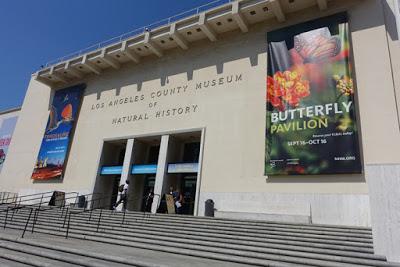
South Entrance of the museum




